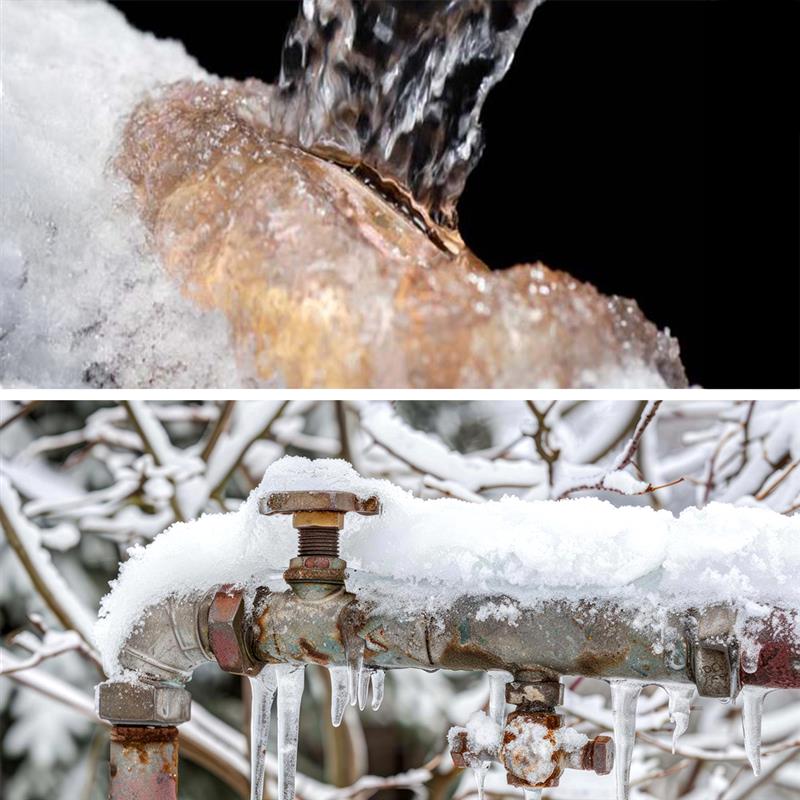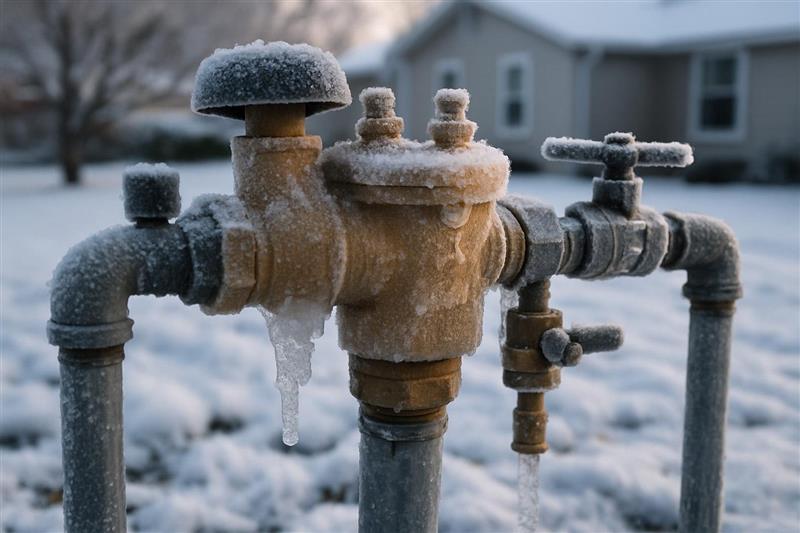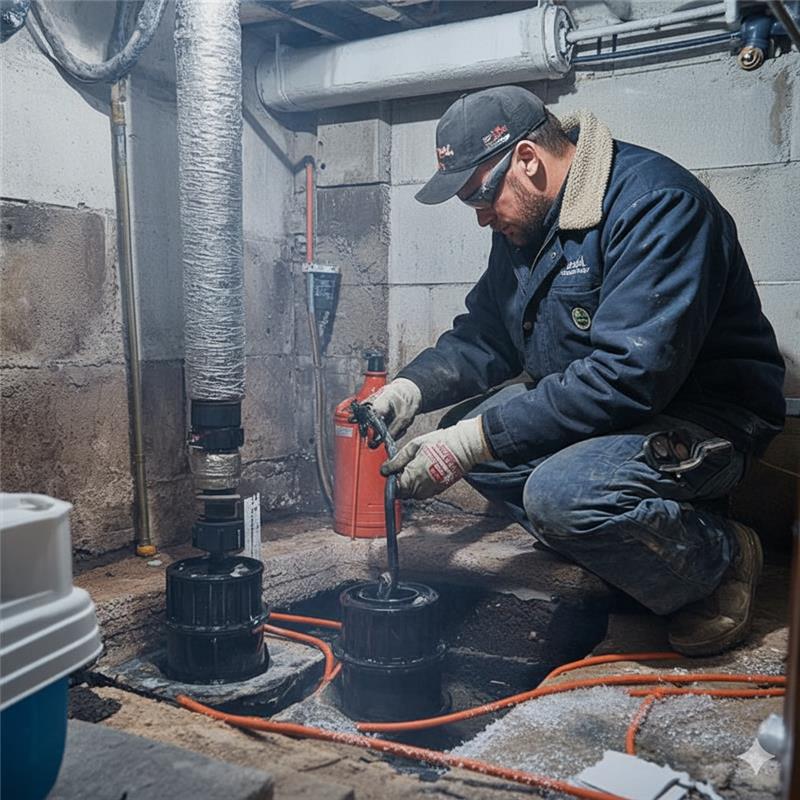Your Go-To for Complete Home Solutions and Trusted Excellence
Your Go-To for Complete Home Solutions and Trusted Excellence
-7506.jpg)
Your plumbing not only senses the cold but also fights it when temperatures in Bend, Oregon, fall below freezing. Unlike many other regions, Bend’s winter issues stem from its high-desert climate, where drastic day-night temperature swings and volcanic soil make pipes especially vulnerable. Homeowners here don’t just face frozen pipes, they face ice blockages, shifting foundations, and hidden leaks that surface only when it’s too late.
If your faucets start sputtering or your water bill suddenly spikes mid-winter, it’s not just bad luck, it's Bend’s climate working against your plumbing. In this blog, we’ll dig into the genuine winter plumbing problems Bend homeowners deal with every winter, and how to spot the warning signs before they turn into a costly surprise.
Whether you want to avoid expensive plumbing repairs this season, need assistance preventing frozen pipes, or are looking for winter plumbing advice in Bend, Oregon, this guide will help you protect your home from the most common winter plumbing issues Bend homeowners face.
In Bend’s cold winter nights, pipes are highly susceptible to freezing. Water expands as it freezes, creating extreme pressure that can crack or burst even the sturdiest pipes. Homes with plumbing along exterior walls, garages, or crawlspaces are particularly at risk. The consequences can be severe: flooded basements, damaged flooring, and costly repairs that range from hundreds to thousands of dollars.
Frozen pipes don’t always break immediately. Sometimes, they slowly leak or develop tiny cracks that worsen over time, causing hidden water damage in walls or ceilings .Knowing which pipes are most vulnerable and taking preventative action early on can save Bend homeowners thousands of dollars in repairs.

What to Do If a Pipe Bursts in Winter?
Connect instantly with a trusted local expert at EasyHomeService.com
Prevention & DIY Solutions:
If freezing occurs:
Cost Estimates:
Winter in Bend doesn’t just freeze pipes; it also puts extra strain on water heaters. Cold incoming water combined with longer showers, increased laundry loads, and higher overall household use makes it harder for water heaters to maintain a consistent supply of hot water. Older units or those with sediment buildup may struggle even more, leading to lukewarm showers, inconsistent flow, and higher energy bills.
In extreme cases, water heaters may completely malfunction in the middle of the winter, depriving residents of hot water throughout the harshest months. To prevent discomfort and expensive repairs, make sure your water heater is ready for Bend's winter climate.
Prevention and DIY tips:
Signs your water heater is struggling:
Cost Estimates:
Pro Tip: Cold groundwater in Bend means winter water heaters work overtime. Proper insulation can reduce energy costs by 10–15%.
Bend’s beautiful winter landscapes hide a hidden plumbing risk: exposed outdoor Winter plumbing Problems. Outdoor faucets, hose bibbs, and irrigation lines often contain standing water that freezes in cold weather, expanding and potentially cracking pipes. Snow accumulation can block surface drains or create ice dams, causing water to back up and seep into foundations or basements.
Many homeowners overlook these outdoor systems, but a frozen or damaged hose bibb can lead to leaks that affect interior plumbing or require expensive replacements. Winterizing outdoor plumbing is one of the simplest yet most effective ways to protect your home from freeze-related damage.

Prevention tips:
If damage occurs:
Cost Estimates:
Local Insight: Winterizing outdoor plumbing in Bend is essential to avoid costly freeze-thaw damage.
If sump pumps or crawlspace plumbing malfunction, even well-insulated homes may experience winter plumbing issues. If discharge pipes freeze, melting snow and ice may overwhelm sump pump problems in winter. Cold drafts can partially freeze pipes in crawl areas, causing backups, leaks, or water damage.
For homeowners in Bend, maintaining dry floors is important, but so as protecting the structural integrity of your home. Ignoring drainage systems or sump pumps can result in costly repairs, mold formation, and flooded basements.

Prevention & DIY Solutions:
Emergency Actions:
Cost Estimates:
Do you know: that cold weather can slow your drains? Fats, grease, and debris solidify in pipes, leading to clogs in sinks and toilets along exterior walls.
Winter in Bend often slows more than just traffic, it can also slow your drains. Clogs occur when fats, grease, and other particles become harder inside pipes due to cold temperatures. Particularly in older homes with uninsulated plumbing, toilets and sinks near external walls may freeze or refill slowly. Water backups, bad smells, and water damage in bathrooms and kitchens can all result from clogged drains. During Bend winters, you may save time, money, and stress by taking preventative measures to manage your drains.
Prevention & DIY Solutions:
DIY & Professional Fixes:
Cost Estimates:
Most winter plumbing issues damage in Bend isn’t caused by long freezes, it’s those quick temperature drops that catch homeowners off guard. Whether you’re managing a downtown home or a rural property on a well, taking a few preventive steps now can save thousands in repair costs come spring
Action checklist:
If your home’s plumbing hasn’t been inspected in a few winters, it’s worth bringing in a local Bend plumber to identify hidden risks before the next cold front hits
Winter in Bend isn’t just about cozy fires and snow-covered views, it’s also the season when your plumbing faces its toughest test. Taking small preventive steps today can protect your home from burst pipes, water damage, and unexpected repair bills tomorrow.
Being proactive keeps your house dry, secure, and stress-free throughout the season, whether it's by insulating your pipes, inspecting your water heater, or setting up a sump pump inspection.
Winter in Bend can be beautiful, but your plumbing shouldn’t have to pay the price. At Easy Home Service, we connect you with local plumbing pros who know exactly how to safeguard your home from Oregon’s harsh freezes. From preventive inspections to 24/7 emergency repairs, we’re here to keep things flowing smoothly all season long.
Connect with a trusted local expert at EasyHomeService.com
To prevent frozen pipes in Bend, Oregon, insulate exposed plumbing—especially in basements, garages, and crawl spaces. Keep indoor temperatures above 60°F, seal cold drafts, and let faucets drip during freezing nights. You can also book a winter plumbing inspection through Easy Home Service to protect your home before temperatures drop.
If your pipes freeze or burst, shut off the main water supply immediately. Open all faucets to relieve pressure and use gentle heat (like a hair dryer) to thaw frozen sections - never use an open flame. For major leaks, contact a professional Bend plumber through Easy Home Service for emergency repairs.
During Bend’s cold months, water heaters work harder because the incoming water is much colder, causing slow heating and higher energy bills. Flush your water heater annually to remove sediment or schedule professional maintenance through Easy Home Service to improve efficiency.
The best time to schedule a winter plumbing inspection is between October and early November—before temperatures drop. A professional inspection helps identify vulnerable pipes, test sump pumps, and ensure insulation is winter-ready.
Winter clogs form when grease and food particles harden in cold pipes. Avoid pouring oils down the sink and run hot water after washing dishes. For persistent clogs, book a drain cleaning service in Bend through Easy Home Service.
Yes. Outdoor faucets and irrigation lines freeze quickly in Bend's cold climate. Disconnect hoses, shut off exterior valves, and install frost-free spigots. If damage occurs, Easy Home Service can connect you with a Bend plumbing specialist for fast repairs.
Basic tasks like pipe insulation and draining outdoor faucets can be DIY, but signs like inconsistent hot water, frost on pipes, or slow drains require a professional. Easy Home Service can schedule a full expert inspection in Bend.
Yes! Easy Home Service connects you with professional Bend plumbers who offer 24/7 emergency plumbing, leak repair, frozen pipe assistance, water heater fixes, and more during winter.
Find Top Rated Service Providers
We help you find top service providers and compare quotes.
Leave a Comment: